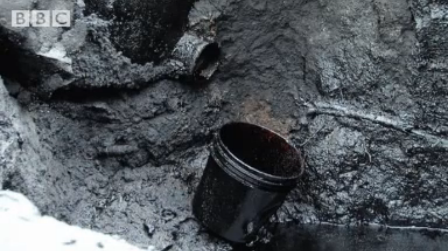
June 2013
With the recent reduction in piracy off the coast of Somalia, attention is now being drawn to the other side of the continent. Piracy is beginning the plague the entire Gulf of Guinea, but Nigeria is where most of the pirate attacks seem to occur.
A recent report from the International Maritime Bureau (IMB) mapped the most dangerous waters in the region, and with the exception of small areas controlled by Togo and Benin, Nigerian waters were where the vast majority of the attacks have occurred.
The report also stated that the piracy was now more prevalent in West Africa than off the Horn of Africa in the east. This is partly due to the international naval presence patrolling the Indian Ocean, but also has much to do with corruption in the Nigerian government and the economic situation there.
Pirates in the east make most of their money off of holding crew of ships captives and demanding enormous ransom payments. But Nigerian pirates tend to focus on the cargo the ships are carrying– in this case, oil or refined petroleum products.
According to the IMB report, most ships in the Gulf are attacked while at anchor, originating or doing ship to ship transfers of oil. Only a third of the attacks occurred while the ship was in motion, which is very different than how Somali pirates operate.
The report proposed that the problem may be rooted in the lack of domestic oil refineries in Nigeria. The government has paid little or no attention to developing a domestic capacity for refining oil, because there is much money to be made exporting crude oil from the Gulf of Guinea and importing refined petroleum to the large, still growing and rapidly modernizing population of Nigeria.
Although Nigeria produces 2 million barrels of crude oil a day, it only has the capacity to refine less than 25% of that number. But even 25% is a reach, as poor maintenance and operation of the few oil refineries leads to even less actually produced for in-country use.
The Niger River Delta is a vast swampland dominated by a quagmire of oil pipes that are either poorly or corruptly secured. This region is also consistently unstable, leading to a perfect atmosphere for organized crime to develop.
Government subsidies to wealthy oil magnates keep some oil prices artificially low to blunt the impact of the stealing. But the majority of Nigerians, who are poor, still understand where the money is ultimately coming from, and who is really paying the cost for this theft.
Many of the stations that are supposed to sell this subsidized petrol to the people of Nigeria instead just shut down their facilities and instead sell black-market oil imported for dirt cheap prices at a huge profit — and it’s not nearly as cheap as the subsidized fuel is supposed to be.
While international fleets may deter pirates, you can be sure that the government of Nigeria will not be welcoming them any time soon. And it is this problem of corruption in the government that needs to be addressed before piracy is gone for good.